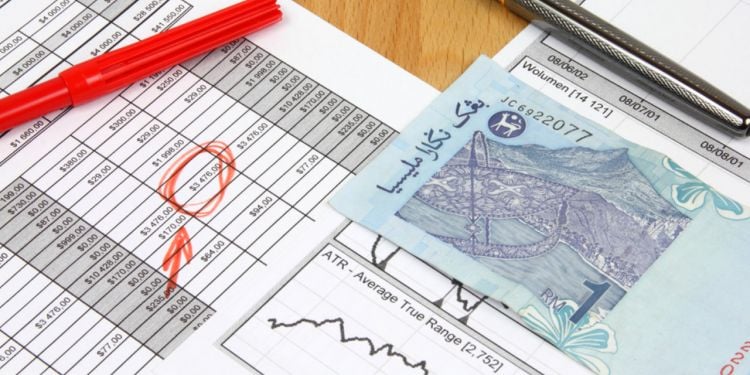
If you plan to move to Malaysia, you will need to consider several taxes and draw up a budget to get a better idea of your net salary. Income tax, corporation tax, property tax, consumption tax and vehicle tax are the main types of taxes, and it is better to know the details in order to avoid surprises once there.
You may also be eligible for certain tax relief, benefits or exemptions, so it's worth researching how you can make the most of your situation.
Income tax
Anyone working in Malaysia for more than 60 days a year is required to pay income tax. Furthermore, all types of income are taxable, including gains from business activities and dividends. However, the length of your stay in Malaysia and the type of work you do will determine the category of tax you might fall in.
The law governing taxation in Malaysia is the Income Tax of 1967. Amendments are regularly made to it during the annual budget exercises, particularly in terms of tax rates. It is therefore important to find out about these different rates, and it would be wise for expatriates to use the services of a local tax adviser.
Please note that expatriates working in Malaysia for more than 60 days a year are all required to declare their income. If you work in the country for more than 60 days, but less than 182 days per year, you will be considered a non-resident and subject to a flat-rate tax of 30%. As a non-resident, you will not be able to benefit from tax reductions or exemptions.
Until January 2022, Malaysia's tax system was territorial, meaning that only income acquired in Malaysia was taxable. From January 1, 2022, income from overseas is no longer exempt from tax for residents of Malaysia. They are now taxable at the rate of 3%. In addition, certain types of industry, such as aviation or the banking sector, are not affected by this territorial tax regime in Malaysia. In these cases, their international income is considered.
If you work in Malaysia for more than 182 days per year, the government considers you a taxable resident. According to section 7 of Part II of the Income Tax of 1967, individuals who have stayed less than 182 days of the year in Malaysia, while having stayed there for 182 consecutive days including those of the previous and/or next fiscal year, are also considered as residents
Expatriates falling into this category must pay tax at a progressive rate and are eligible for tax reliefs. Malaysia's progressive personal income tax system provides a tax rate relative to an individual's annual earnings. Malaysia's 2020 budget raised the top tax rate for anyone earning more than RM2 million a year (about $419,000) from 28% to 30%.
Tax rate according to income in Malaysia:
- RM 0 to 5,000 - 0%
- 5,001 to 20,000 RM - 1%
- 20,001 to 35,000 RM - 3%
- RM35,001-50,000 - 8%
- 50,001 to 70,000 RM - 14%
- 70,001 to 100,000 RM - 21%
- 100,001 to 250,000 RM - 24%
- 250,001 to 400,000 RM - 24.5%
- 400,001 to 600,000 RM - 25%
- 600,001 to 1,000,000 RM - 26%
- RM1,000,000-2,000,000 - 28%
- Over RM2,000,000 - 30%
If the end of your contract of employment is approaching, if you resign from your job or if you leave Malaysia for more than three months, you will have to apply for a liquidation of taxes. This is a Malaysian Inland Revenue Certificate or letter that determines whether you have to pay income tax or not. Once this letter has been received, your employer must release the balance of any amount owed to you after settling all outstanding taxes.
Exemptions and Benefits
Not all expats in Malaysia are required to pay personal income tax. Foreigners working in Malaysia for less than 60 days are exempt from taxes, as are those employed onboard a Malaysian vessel or those over the age of 55 receiving a pension from employment in Malaysia.
The government of Malaysia offers several tax deductions and benefits for expatriate workers who qualify as tax residents. These include:
- tax relief for a spouse who earns no income in any country,
- tax relief for those who must pay for parental care,
- tax relief for each child under 18, and
- tax relief for children who go to higher education.
There is also a tax exemption for women who wish to return to work after a break in their career, provided by the Malaysians@Work program. Only those who have not received income in Malaysia during the previous two tax years are eligible, among other conditions. This program, which can benefit expatriates who have previously worked in Malaysia, was launched in 2000 with the aim of creating 35,000 jobs. Application for this exemption should be sent to Talent Corporation Malaysia Berhad by December 31, 2023.
Since 2017, childcare centers and breastfeeding equipment have also received tax relief, while lifestyle products, such as books, electronics and sports equipment, are classified in a category called "tax relief". lifestyle tax”, limited to RM2,500 per year.
Filing your tax return and penalties
In Malaysia, the fiscal year begins on January 1 and ends on December 31, in accordance with the calendar year. All employed expatriates must complete and file their tax return by April 30 of the following year. The deadline for contractors is June 30. Any failure to declare income may generate disciplinary costs corresponding to a 10% increase in the tax to be paid.
To complete your tax return, you will need details of the total amount paid to you during the tax year. This Annual Statement of Remuneration (Form EA) is published each year at the end of February.
Anyone subject to tax is required to declare their income to the Inland Revenue Board of Malaysia (IRBM). It is the taxpayer's responsibility to submit his/her completed income tax return form (ITRF), save and retain supporting documents for audit purposes for seven years and pay any pending income tax.
To complete the tax return, an expatriate must obtain an identification number for income tax from the IRBM. If you are employed, your company will generally take responsibility for obtaining your income tax identification number. However, if your company does not do this, you will need to apply for an ID at the nearest IRBM office within two months of your arrival in the country, or electronically via the IRBM website
You can complete your tax return online or manually. For electronic filing, you can fill out your form directly online on the IRBM website. Alternatively, if you prefer to complete your declaration manually, you can go to the nearest IRBM office to obtain the appropriate form. You can also download the form online, print it and fill it out manually. Form B was designed for people who have a business in Malaysia and, therefore, does not apply to you if you are employed by a company. The BT form is reserved for those who have been approved as qualified experts. The most common forms for expatriates are Form BE, for corporate employees, and Form M, which is for non-residents.
If an expat submits an incorrect tax return in which he omits or understates his income, the IRB office has the right to impose a fine of 100% of the underpaid tax.
Corporate Income Tax
If you own a business in Malaysia that is a Malaysian resident tax corporation, meaning that it is managed and controlled in Malaysia, then you will be liable to pay corporate income tax.
Resident or non-resident companies earning income within Malaysia are taxed at the rate of 24%, while those with paid-up capital of RM2.5 million or less are taxed at 17% on their first RM 600,000 and 24% for winnings over RM 600,000. The tax is generally payable in 12 monthly installments, beginning in the second month of the company's fiscal year, and income-generating expenses are deductible when calculating taxable income.
Since January 1, 2022, a withholding tax of 2% is provided for any monetary payment made by companies to their agent. Following the Covid-19 pandemic in Malaysia, exemptions have also been put in place for companies that have carried out renovations and other investments from March 2020. There are other similar exemptions, as well as tax incentives for companies that invest in sustainable development or promote employment, among others.
Goods and Services Tax
In September 2018, the government of Malaysia reintroduced the Sales and Services Tax (SST) to replace the highly unpopular Goods and Services Tax (GST). Under the new regime, the list of taxable products is much less extensive. The taxable rate is between 5 and 10% on products and 6% on services. Certain products, such as rice, flour, certain medicines or the first 300 units of electricity, are subject to a zero rate. The full list of taxable and non-taxable goods and services can be found on the Royal Malaysian Customs Department website.
In some stores and restaurants, the price you see on the item or menu will be lower than the price you pay at checkout, so it's important to be aware of this surcharge when buying an item or service.
Real Estate Tax and Stamp Duty
If you buy property in Malaysia, you will be subject to Real Property Gains Tax (RPGT) when you make a profit on the sale of your property. This is a tax based on the profit gained from the sale of real estate. It varies depending on how long you have owned the property. This tax must be remitted to the Inland Revenue Board and is applicable to Malaysians and permanent residents.
The RPGT rate is 20% if you have owned the property for 3 to 4 years, 15% for 4 to 5 years, and 5% for more than 5 years.
If you buy property in Malaysia, you will also have to pay stamp duty, which is a tax levied on the legal recognition of the S&P agreement and the loan agreement when you buy a house. This is 1% for properties worth less than RM100,000, 2% for those worth between RM100,001 and 500,000, 3% for goods worth between RM 500,001 and 1 million, and 4% for those worth more than RM 1 million.
Road Tax
Road tax and vehicle insurance are mandatory in Malaysia. The road tax is paid on an annual basis and must be renewed every year just like for insurance. The road tax structure varies depending on the type of car, its engine capacity, region and type of ownership.
In Malaysia, cars with an engine of less than 1.6L capacity are charged a flat rate. This depends on the type of vehicle; whether it is a private or company-owned car. On the other hand, cars whose engines have a capacity of more than 1.6L are subject to a progressive tariff, as well as a base tariff. Simply put, the bigger and more expensive your car, the more road tax you will have to pay.
The minimum rate required for road tax is RM20 for a vehicle under 1,000cc, and the maximum rate exceeds RM2,134 for vehicles over 3,000cc.
The Department of Road Transport asks for the type of vehicle, registration number, engine capacity, year of manufacture and total insured to calculate the amount of road tax.
Useful links:
ASEAN briefing on Individual Income Tax in Malaysia for Foreigners
We do our best to provide accurate and up to date information. However, if you have noticed any inaccuracies in this article, please let us know in the comments section below.












Comments
1